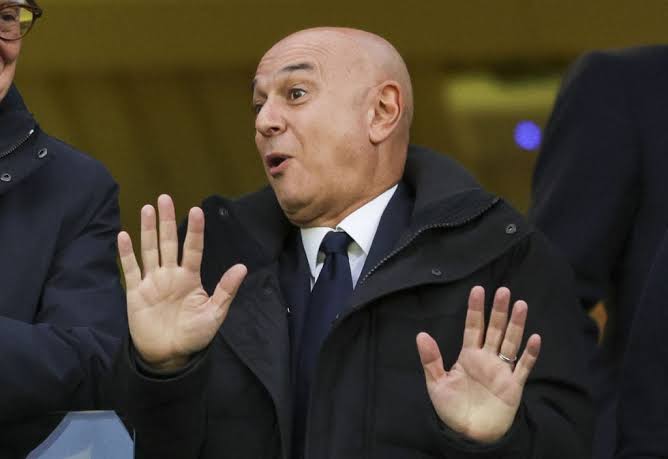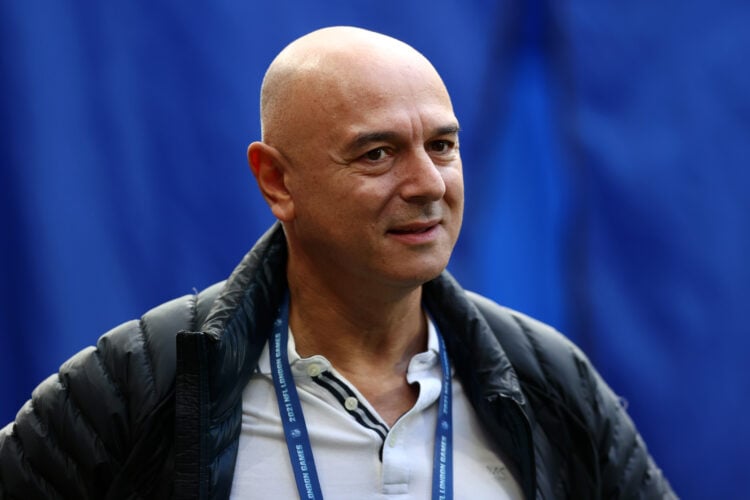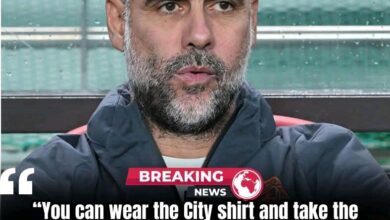Two Tottenham takeover updates as FIFA confirm £5bn development

The ongoing discussions surrounding the future of Tottenham Hotspur, particularly regarding the search for fresh equity investment, have garnered considerable attention within both football and business circles. As the chairman and co-owner of Tottenham Hotspur, Daniel Levy has been at the forefront of these developments, navigating the complexities of finding suitable investors for one of the most prominent clubs in the English Premier League.
Earlier this year, Tottenham Hotspur made headlines by officially announcing their openness to a potential takeover. This announcement was carefully worded, leaving the door open for both majority and minority investment opportunities. Levy’s strategic communication indicated a willingness to explore various avenues for securing the club’s financial future while also preserving its legacy and competitive standing in the sport.
Among the names linked to potential investments in Tottenham is Amanda Staveley, the former Newcastle United executive, whose PCP Capital Partners reportedly raised £500 million for a new football acquisition. Staveley’s involvement in the football industry, particularly her role in the Newcastle United takeover, has made her a significant figure in discussions about Tottenham’s future. However, despite the rumors, there has been little concrete evidence to suggest that an investment from Staveley or her consortium is imminent.
In addition to Staveley, other prominent entities have shown interest in acquiring a stake in Tottenham Hotspur. Liberty Media, the owners of Formula 1, have reportedly expressed an interest, as have MSP Sports Capital, a firm that recently attempted to purchase Everton. Despite this interest, experts believe that Tottenham’s high valuation, reportedly around £3.75 billion, has been a significant hurdle in finalizing any investment deals. This valuation, while reflective of the club’s stature and potential, may be too steep for many potential investors, particularly in the current economic climate.
It is important to note that Tottenham Hotspur has been on the market for several years. The official announcement earlier this year merely confirmed what many in the industry had already known: that the club was open to new investment opportunities. The reasons behind the delay in securing a deal, however, are becoming increasingly clear.
One of the primary factors complicating a potential takeover or investment in Tottenham Hotspur is the issue of cost control within the Premier League. In recent years, private equity funds, particularly those based in the United States, have increasingly invested in Premier League clubs. However, there is a growing perception that cost control in the league is almost non-existent. This perception has dampened the enthusiasm of some investors, particularly those accustomed to the more predictable financial environments of American sports leagues such as the NFL or NBA, where costs are more or less fixed.
Tottenham Hotspur stands out in the Premier League as one of the few clubs that operates within its financial means. Under Levy’s stewardship, the club has maintained a reputation for prudent financial management, avoiding the excessive spending that has characterized many of its rivals. This approach, while ensuring the club’s long-term financial stability, may not be as attractive to investors looking for quick returns. The trend of increasing spending within the league, coupled with the resulting decline in profitability across many clubs, has made the Premier League a less appealing investment opportunity for some private equity firms.
Adding to the complexity of the investment landscape, FIFA recently confirmed that nearly £5 billion was spent on international transfers during the summer transfer window, the second-highest amount on record. The Premier League, even in what is considered a relatively quiet year, was the biggest driver of this spending. For potential investors, particularly those considering a stake in Tottenham, the prospect of engaging in a financial arms race with other top clubs is far from appealing.
One of the reasons why the NFL or NBA might be more attractive to investors compared to the Premier League is the predictability of costs in these American leagues. In contrast, the Premier League’s lack of cost control and the competitive pressure to spend heavily on transfers and wages create an environment where profitability can be elusive. For Tottenham Hotspur, a club that prides itself on financial discipline, finding investors who share this long-term vision rather than seeking immediate returns may be challenging.
However, there are still potential opportunities on the horizon that could reignite investor interest in Tottenham Hotspur. One such opportunity lies in the potential for a significant increase in revenue from the Champions League, which has undergone its own set of changes. UEFA has expanded the tournament format, increasing the number of participating teams and matches, which is expected to boost revenues for the top clubs by around 25% annually.
While Tottenham missed out on qualifying for the inaugural edition of the revamped Champions League for the 2024-2025 season, the club sees itself as a regular contender for the competition in the future. With the possibility of as many as six Premier League clubs qualifying for the Champions League in the coming years, the steady and substantial revenue streams from this tournament could make Tottenham a more attractive investment proposition.
Another potential revenue stream that has attracted attention is the expanded Club World Cup, which FIFA has promised could generate significant income for participating clubs. However, the financial benefits from this tournament are likely to be sporadic, as they depend on qualification criteria that not all clubs, including Tottenham, may consistently meet.
For clubs like Tottenham, which have historically been cautious about spending, the Champions League’s expanded format offers a more predictable and potentially lucrative revenue source. This could make the club more appealing to investors who are looking for a balance between profitability and competitive success. The near-guaranteed revenues from regular participation in the Champions League may be viewed as a “golden goose” by investors, providing a stable financial foundation for the club’s future.
In contrast, the idea of a European Super League, once seen as a potential financial windfall for clubs like Tottenham, has become increasingly unlikely due to widespread fan opposition and legal challenges. The backlash against the proposed Super League highlighted the importance of considering fan sentiment in any major financial decisions affecting the club. For Tottenham, maintaining a positive relationship with its supporters is crucial, especially when navigating the complex landscape of football finance.
The delay in securing new investment for Tottenham Hotspur can also be attributed to the broader economic environment. The global economic downturn and the uncertainty surrounding future revenue streams in football have made many investors cautious. The high valuation of the club, coupled with concerns about cost control in the Premier League, has created a challenging environment for concluding a deal.
Despite these challenges, Tottenham Hotspur remains one of the best-run clubs in the world from a business perspective. Under Levy and ENIC’s stewardship, the club has grown into a global brand, boasting a state-of-the-art stadium, a strong commercial portfolio, and a consistently competitive team. This business acumen, while essential for the club’s long-term success, also sets a high bar for potential investors, who must be willing to meet the club’s valuation and align with its strategic goals.
As Tottenham continues its search for fresh equity investment, it is clear that any potential deal will require careful consideration of both financial and sporting factors. The club’s ability to attract the right kind of investor—one who shares its vision for sustainable growth and competitive success—will be key to its future.
The potential for increased revenue from the Champions League and other sources offers hope that Tottenham can secure the investment it needs to continue competing at the highest levels of the sport. However, the club must also navigate the complexities of the current football finance landscape, balancing the need for financial discipline with the demands of remaining competitive in the Premier League and beyond.
In conclusion, Tottenham Hotspur’s ongoing search for new investment is emblematic of the broader challenges facing football clubs in the modern era. The club’s high valuation, coupled with the uncertain financial landscape of the Premier League, has made securing a deal more difficult than anticipated. However, the potential for increased revenue from expanded European competitions and the club’s strong business fundamentals provide a solid foundation for future success. As Tottenham continues to explore its options, the club’s leadership will need to carefully balance the demands of financial stability with the ambition to remain competitive at the highest levels of football.















